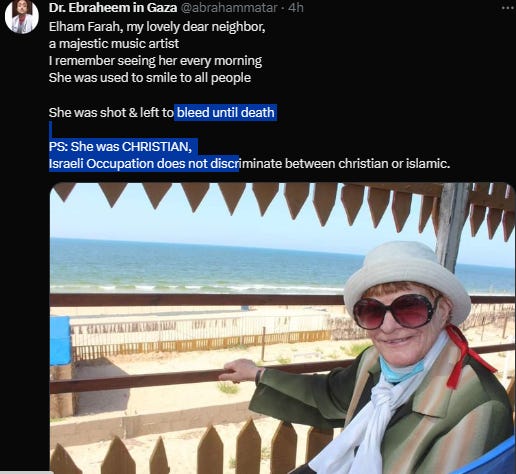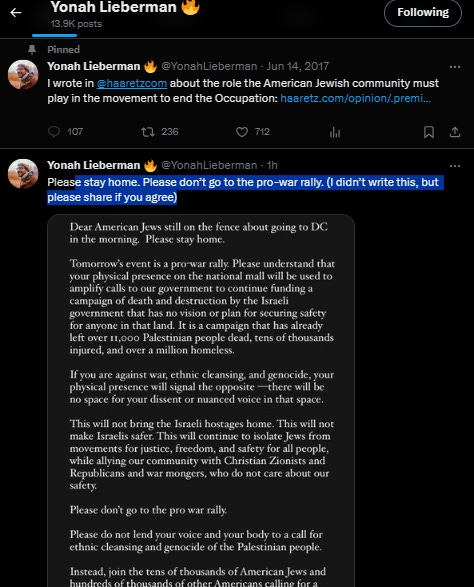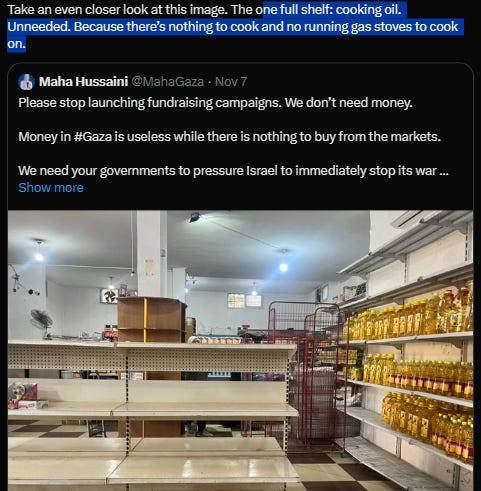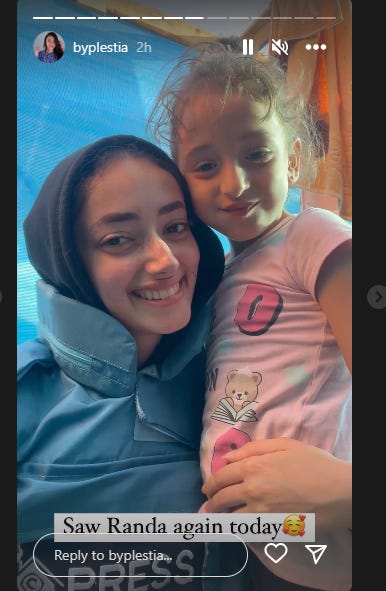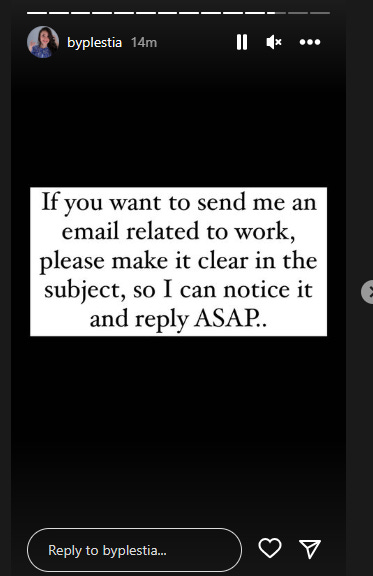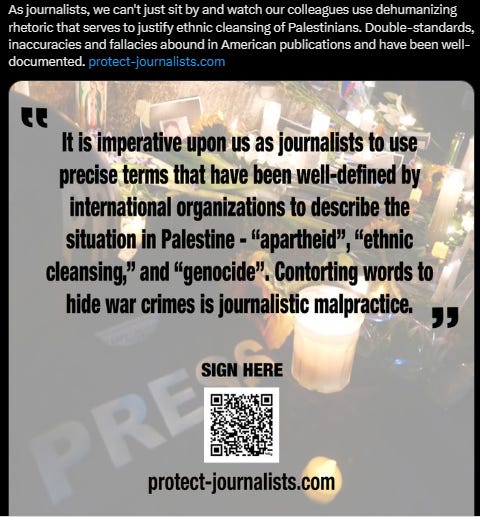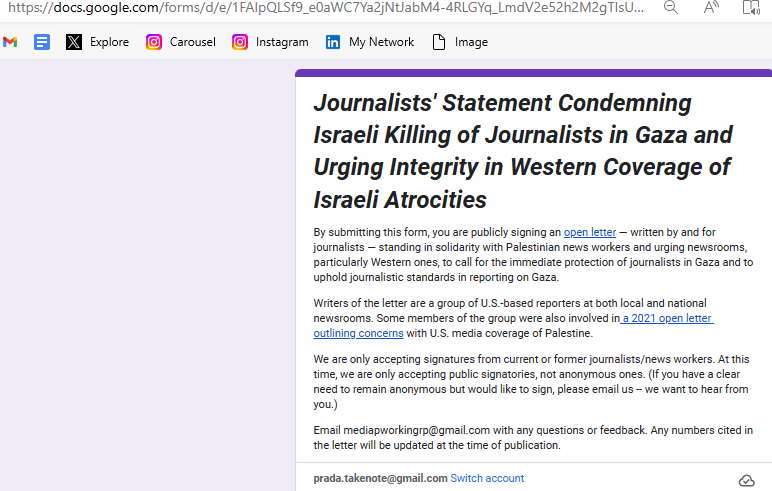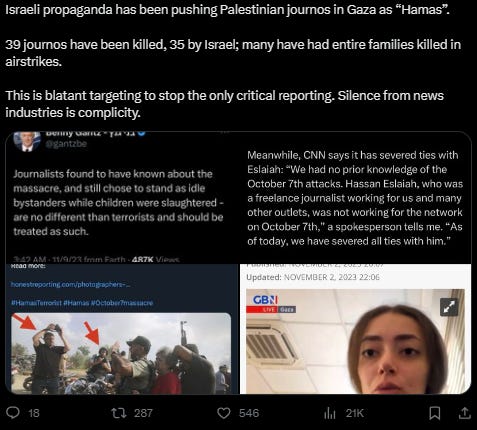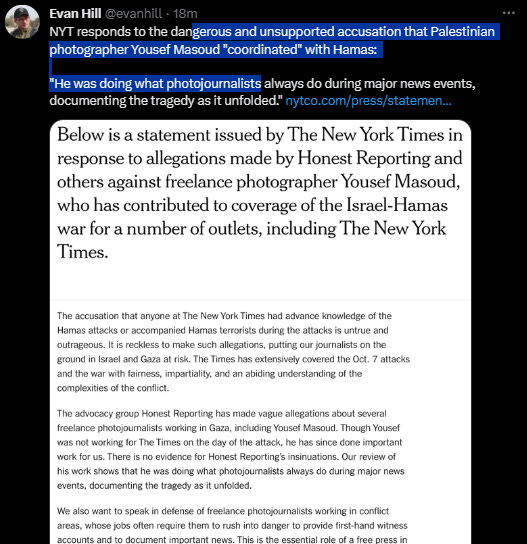Harvard Faculty Response to "Combating Antisemitism"
If we are on the side of humanity we must urgently speak up to try and avert the loss of innocent life.“ Appreciate all the people with a moral compass who aren't afraid to stand up for Palestine
Gaza 6.58am / DC 11.58pm
Dear President Gay:
As Harvard faculty, we have been astonished by the pressure from donors, alumni, and even some on this campus to silence faculty, students, and staff critical of the actions of the State of Israel. It is important to acknowledge the patronizing tone and format of much of the criticism you have received as well as the outright racism contained in some of it.
We were nevertheless profoundly dismayed by your November 9 message entitled “Combating Antisemitism.” The University's commitment to intellectual freedom and open dialogue seems to be giving way to something else entirely: a model of education in which the meaning of terms once eligible for interpretation is prescribed from above by a committee whose work was, on Tuesday, described to the faculty as only beginning.
There should surely be limits to what is speakable, even in a university. Saying things that are plainly untrue – denying the Holocaust, for example – merits condemnation. Derogating other members of the community in racist, xenophobic, sexist, homophobic, or transphobic language merits condemnation.
There must, however, be room on a university campus for debate about the actions of states, including of the State of Israel. It cannot be ruled as ipso facto antisemitic to question the actions of this particular ethno-nationalist government any more than it would be ipso facto racist to question the actions of Robert Mugabe's ethno-nationalist government in Zimbabwe.
Nor can arguments that characterize Israel as an “apartheid" state or its recent actions as “ethnic cleansing” or even “genocide” be considered automatically antisemitic, regardless of whether one concurs with such arguments. The University’s recently-announced “Discrimination and Bullying Policies and Procedures,” it is useful to remember, includes “political belief” (and thus presumably its expression) as a protected category.
It is understandable that in the shadow of the twentieth-century history of Europe, Palestine, and Israel, as well as the attacks of October 7 and the ongoing catastrophe in Gaza, you would want to remind members of our community that their words have meaning.
And yet, at a moment when an affiliate of the University has with apparent impunity stood in the yard and accused students of supporting terrorism, your delineation of the limits of acceptable expression on our campus is dangerously one-sided.
Similarly, the phrase "from the river to the sea, Palestine must be free" has a long and complicated history. Its interpretation deserves, and is receiving, sustained and ongoing inquiry and debate. Singling it out as necessarily implying removalism or even eliminationism – when over a million Palestinians have been forced from their homes and over ten thousand civilians, including four thousand children, have been slain in Gaza, actions which the Holocaust historian Omer Bartov suggests in the New York Times may amount to a “crime against humanity” being executed with “genocidal intent” – is imprudent as a matter of university policy and badly misjudged as an act of moral leadership.
We call on you to present a balanced commitment to the support of intellectual freedom at Harvard by taking the following steps:
Resisting calls to suspend and/or decertify the Palestine Solidarity Committee in retaliation for its public statements and advocacy, and resisting calls to set aside the University’s normal disciplinary procedures to prematurely sanction students and employees because of concerns raised about their political activity absent specific allegations of wrongdoing (and those already thusly sanctioned must be reinstated pending a procedurally sound investigation);
Directing the President’s Advisory Group on Antisemitism to explain its definition of antisemitism to the University community, as requested at the FAS faculty meeting of November 7, before recommending any policies touching upon the freedom of thought and expression on our campus;
Explicitly and specifically affirming the University’s commitment to the freedom of thought, inquiry, and expression in light of the extraordinary pressure being brought to bear upon critics of the State of Israel and advocates of the Palestinian people, and indicating that there can be no tolerance for a “Palestine exception” to free speech;
Creating an advisory group on Islamophobia and anti-Palestinian and anti-Arab racism (as suggested at the FAS faculty meeting of November 7).
Sincerely,
Walter Johnson, Harvard Faculty of Arts and Sciences
Kirsten Weld, Harvard Faculty of Arts and Sciences
Vijay Iyer, Harvard Faculty of Arts and Sciences
Deidre Lynch, Harvard Faculty of Arts and Sciences
Nikolas Bowie, Harvard Law School
Diane Moore, Harvard Divinity School
Namwali Serpell, Harvard Faculty of Arts and Sciences
Khalil Gibran Muhammad, Harvard Kennedy School
Sidney Chalhoub, Harvard Faculty of Arts and Sciences
Christopher Hasty, Harvard Faculty of Arts and Sciences
Salma Abu Ayyash, Harvard Faculty of Arts and Sciences
Jesse B. Bump, Harvard T. H. Chan School of Public Health
Ryan D. Doerfler, Harvard Law School
Atalia Omer, Harvard Divinity School
Bram Wispelwey, Harvard T. H. Chan School of Public Health and Harvard Medical School
Sara Roy, Harvard Faculty of Arts and Sciences
Lucien Castaing-Taylor, Harvard Faculty of Arts and Sciences
Neel Mukherjee, Harvard Faculty of Arts and Sciences
Margareta Matache, Harvard T. H. Chan School of Public Health
Soham Patel, Harvard Faculty of Arts and Sciences
John Womack, Harvard Faculty of Arts and Sciences
Musa Syeed, Harvard Faculty of Arts and Sciences
Jacinda Tran, Harvard Faculty of Arts and Sciences
Vincent Brown, Harvard Faculty of Arts and Sciences
Adhy Kim, Harvard Faculty of Arts and Sciences
Richard Thomas, Harvard Faculty of Arts and Sciences
Lara Jirmanus, Harvard T. H. Chan School of Public Health
Altaf Saadi, Harvard Medical School
Hibah Osman, Harvard Medical School
Lisa Thompson, Harvard School of Dental Medicine
Khameer Kidia, Harvard Medical School
Mary T Bassett, Harvard T. H. Chan School of Public Health
Sawsan Abdulrahim, Harvard T. H. Chan School of Public Health
Cemal Kafadar, Harvard Faculty of Arts and Sciences
Lauren Kaminsky, Harvard Faculty of Arts and Sciences
Amy Hollywood, Harvard Divinity School
Malak Rafla, Harvard Medical School
Bassima Abdallah, Harvard Medical School
Alejandra Caraballo, Harvard Law School
Eleanor Craig, Harvard Faculty of Arts and Sciences
Matylda Figlerowicz, Harvard Faculty of Arts and Sciences
Adam Haber, Harvard T. H. Chan School of Public Health
Tara K. Menon, Harvard Faculty of Arts and Sciences
Arunabh Ghosh, Harvard Faculty of Arts and Sciences
Joel Suarez, Harvard Faculty of Arts and Sciences
Karameh Kuemmerle, Harvard Medical School
Sam Marks, Harvard Faculty of Arts and Sciences
Rosie Bsheer, Harvard Faculty of Arts and Sciences
Nader Uthman, Harvard Faculty of Arts and Sciences
Glenda Carpio, Harvard Faculty of Arts and Sciences
Adaner Usmani, Harvard Faculty of Arts and Sciences
Paulina Alberto, Harvard Faculty of Arts and Sciences
Sarah Darghouth, Harvard Medical School
Alisa Khan, Harvard Medical School
Patricia Stoeck, Harvard Medical School
Hajirah Saeex, Harvard Medical School
Sherar Andalcio, Harvard Medical School
Diana L. Eck, Harvard Faculty of Arts and Sciences
Gordon Schiff, Harvard Medical School
Mahmoud Abu Hazeem, Harvard Medical School
Rania El Fekih, Harvard Medical School
Hicham Skali, Harvard Medical School
Ramona Dvorak, Harvard Medical School
Kamal Itani, Harvard Medical School
Haytham Kaafarani, Harvard Medical School
Ousmane Kane, Harvard Divinity School
David U. Himmelstein, Harvard Medical School
Joycelyn Ronda, Harvard Medical School
Christian Williams, Harvard Law School
Steffie Woodhandler, Harvard Medical School
Ju Yon Kim, Harvard Faculty of Arts and Sciences
M. Amin Arnaout, Harvard Medical School
Autumn Allen, Harvard Graduate School of Education
Avik Chatterjee, Harvard Medical School
Farhana Sharmeen, Harvard Medical School
Duncan Kennedy, Harvard Law School
Aisha James, Harvard Medical School
Corey Hardin, Harvard Medical School
Caroline Light, Harvard Faculty of Arts and Sciences
Karen Huang, Harvard Faculty of Arts and Sciences
George Aumoithe, Harvard Faculty of Arts and Sciences
Michelle Morse, Harvard Medical School
Sadeq Rahimi, Harvard Medical School
Sugata Bose, Harvard Faculty of Arts and Sciences
Lorenzo Bondioli, Harvard Faculty of Arts and Sciences
Michael Bronski, Harvard Faculty of Arts and Sciences
David Kennedy, Harvard Law School
Christina Villarreal, Harvard Graduate School of Education
Hilary Rantisi, Harvard Divinity School
Kassem Safa, Harvard Medical School
Huma Farid, Harvard Medical School
Bernhard Nickel, Harvard Faculty of Arts and Sciences
Amanda Raffoul, Harvard Medical School
Martha Ann Selby, Harvard Faculty of Arts and Sciences
Marshall Ganz, Harvard Kennedy School
I know a lot of high-ranking media, such as New York Times, Guardian, Anadolu, BILD, Spiegel, Financial Times, Strait Times, Washington Post etc subscribed my substack. Plestia ‘Bosbos’ Alaqad ready to be your Stringer inside Gaza under bombing by Israel. Plestiaa2011@gmail.com
Toddler with Plestia, before war, living in Northern Gaza and they evacuated to Southern Gaza. Since Friday, Oct 13, when Israel announced to every Gazans from northern move to southern, more than 5,000 killed in southern, not counting barbaric bombing in northern Gaza. Northern Gaza is being depopulated, while even residents in the south are ordered to evacuate as the israelis implement their ethnic cleansing. Refugee literally fulfilled Israel warning, and still killed with barbaric bombing by Israel. Documentation by Plestia Alaqad
result of QR code = link
Even, Evan Hill is Washington Post journo, not NYT / New York Times
————————————————
Forgive me for pointing out that my ability to provide this coverage is entirely dependent on your kind voluntary subscriptions which keep this newsletter-substack going. This post is free for anybody to reproduce or republish, including in translation. You are still very welcome to read without subscribing.
Unlike adversaries including the Integrity Initiative, The Atlantic, Visegrad, Bellingcat, the Atlantic Council and hundreds of other warmongering propaganda operations, this newsleter-substack has no source of state, corporate or institutional finance whatsoever. It runs entirely on voluntary subscriptions from its readers – many of whom do not necessarily agree with every article, but welcome the alternative voice, insider information and debate.




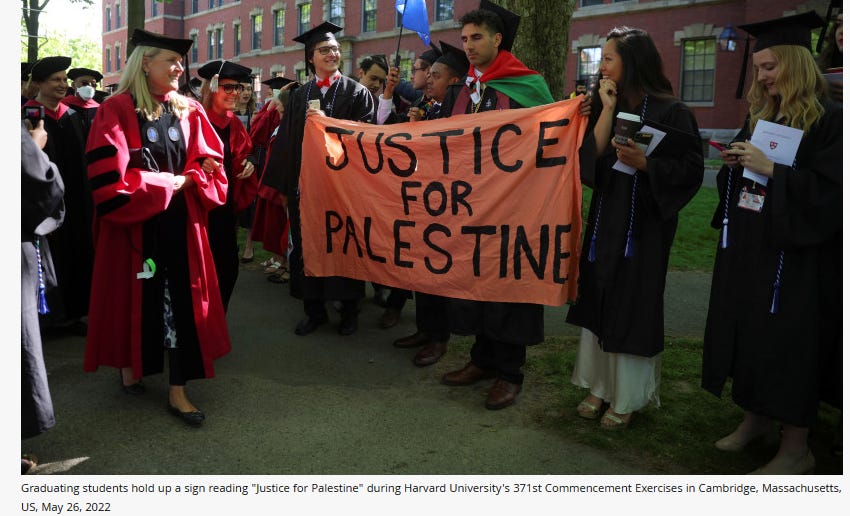
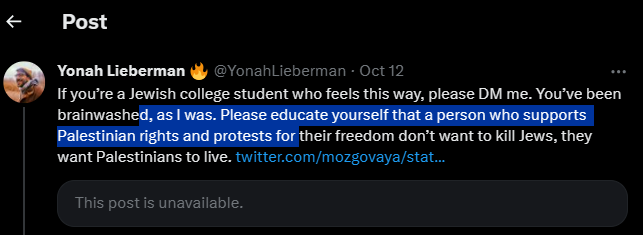
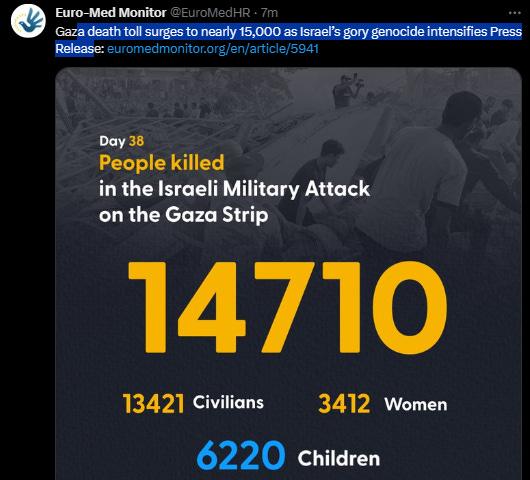
![Letter from Harvard, Christian [Support Palestine]](https://substackcdn.com/image/fetch/w_1300,h_650,c_fill,f_auto,q_auto:good,fl_progressive:steep,g_auto/https%3A%2F%2Fsubstack-post-media.s3.amazonaws.com%2Fpublic%2Fimages%2F02468361-d87a-47e7-9e32-b4b217c79d65_720x1280.png)
